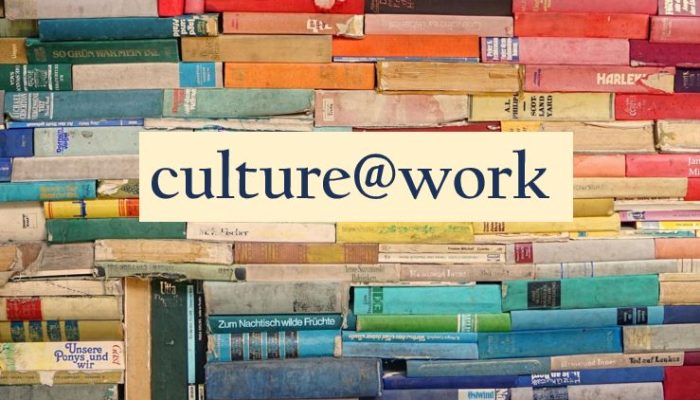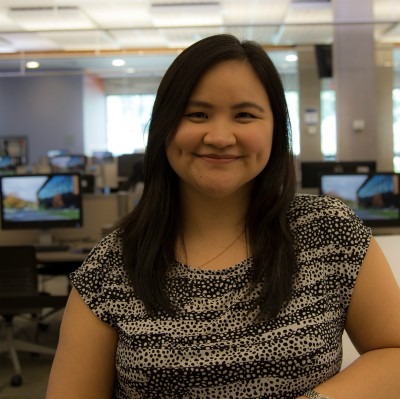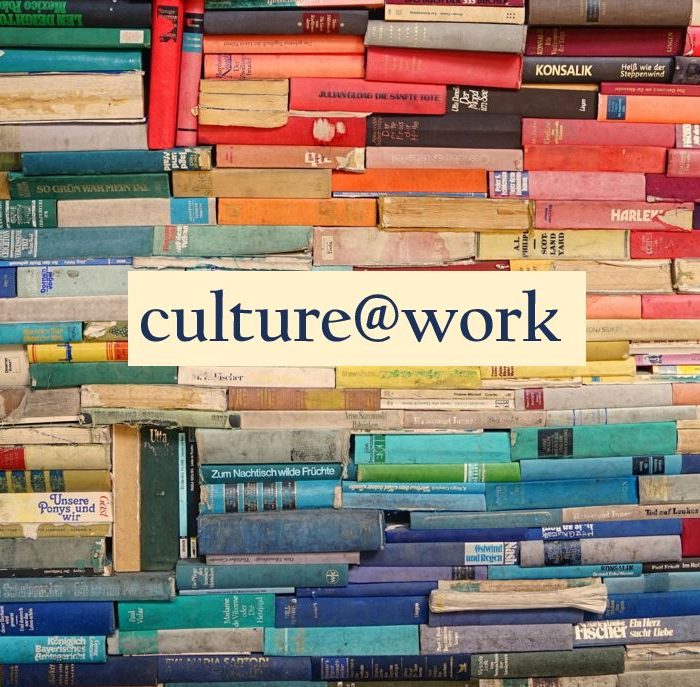Ling Lam is an assistant department head at the Toronto Reference Library.

Cultural diversity and inclusion in the workplace
Welcome to culture@work, brought to you by the OLA Cultural Diversity and Inclusion Task Force. This column showcases diversity in library work in Ontario by introducing Open Shelf readers to library staff from around the province. By highlighting the experiences of library workers, we hope readers will get to know more of their OLA colleagues and perhaps be inspired by, if not more informed about, issues of diversity in librarianship in Ontario, and perhaps beyond.
 Name: Mai Lu
Name: Mai Lu
Title: Head of Public Services, University of Toronto Mississauga Library
1. Where do you work?
I work at the University of Toronto Mississauga (UTM) Library as the Head of Public Services. I am responsible for the management of Information and Loans services, Reference and Research Services, Assessment, Communications, and the Library Community Development Program.
2. Tell me a little about yourself. Why have you chosen to work in Libraries?/ How did you end up working in libraries?
I love that libraries help people learn! I want to help people expand their horizons and learn new skills. I have volunteered or worked in libraries for most of my life, starting in elementary school as a part of the “Novel Group”—a group of student volunteers helping out in the library. I decided to become a librarian following a high school co-op placement in the information resource centre of a local newspaper.
As a librarian, I have worked in public libraries for over 15 years, spending the last nine years in management roles. I have found that while we serve different communities in public and academic libraries, the principles of reducing barriers to access and developing inclusive and welcoming spaces are the same. We are committed to helping people learn!
3. Tell us about cultural diversity and inclusion, what do you think libraries can do to be more inclusive? Have you faced any barriers? Why do you think diversity is important for our library communities?
Libraries have always been advocates for social justice—the 2020 OLA Super Conference featured many sessions on diversity, inclusion, and decolonization—but while libraries have done a great job of making the library welcoming for their patrons, it’s time for libraries to look internally to also make the library welcoming for their employees. It is important for people to see themselves and their experiences reflected in their library. Libraries can be more inclusive by reviewing library practices with an equity lens, using inclusive language when referring to library leaders, and supporting mentorship at all stages of a career.
Mentorship is a great tool that should be used more and is important at all stages of a career. New librarians are encouraged to find mentors but we tend to overlook the importance of mentorship for mid-career librarians. I have benefited greatly from kind and supportive supervisors and peers throughout my career, and I would like to open doors for others and help develop future leaders, especially among people in under-represented groups. I am a mentor and a mentee in the OLA MentorMatch program this year.
I have been fortunate in my career in that I don’t recall experiencing discrimination due to my ethnicity. However, I have been either the only, or one of two library leaders of colour in leadership meetings.
The diversity of library staff has increased, but there are still few library leaders of colour. Research has shown that some library leaders of colour leave leadership roles due to microaggression, burnout, and lack of opportunity. This is why it is important to foster leadership potential for all employees, and particularly important to support growth and opportunities for people from disadvantaged groups. Creating an environment that supports inclusivity and diversity moves us in the right direction.
4. What continues to inspire you on your job/in your career?
The commitment and dedication of library people inspires me. I am surrounded by people, at all levels, who work tirelessly to develop policies and practices that help our community succeed. I am a firm believer in life-long learning. At the library, you can, intentionally or serendipitously, find resources that expand your mind and broaden your perspective. These resources come in the form of collections, programs, and the wonderful library people.
5. What piece of advice would you give a diverse librarian beginning their career as well as those librarians in their mid career?
To new librarians, I recommend keeping your options open and follow subjects and positions that are interesting to you. When you are new to a profession, it is important to build relationships and expand your network. Volunteer for committees or attend networking events to meet more people in the profession.
To mid-career librarians, I suggest stepping out of your comfort zone from time to time. Try something that makes you feel uncomfortable. This is a great way to stretch your skill set and grow as a professional. I went back to school in 2016 part-time, while working full-time. I completed a Master’s in Public Policy, Administration and Law at York University in 2018. It was difficult, at times, to balance work and school; but it was worth it. My cohort was made up of people at different stages of their lives and careers. We learned so much from each other. These are new friends that I would not have met in the library circles.
6. What work do you think librarians in Ontario need to do to work towards positive social change?
Library practices are developed to be fair and equal. In a perfect world where everyone has the same level of privilege, a system based on equality would truly give everyone a fair chance of success. In reality, some practices may inadvertently disadvantage some people. It is important to review our library practices through an equity lens, because equality is not the same as equity. For example, hiring practices are designed so that all candidates have fair and equal opportunities. However, some library staff from historically disadvantaged groups may lack the knowledge or experience of the hiring process, and this may hinder their ability to move up the organizational ladder. It’s important for libraries to check their privilege and challenge their assumptions.
In addition to equitable practices, it’s also important to use inclusive language. In the library world, we tend to use “librarian” as a synonym for library leader. But when I think about library leaders, I think of both librarians and supervisors who are not librarians. The library world is full of talented, intelligent, and devoted library leaders who work as supervisors, coordinators, and branch heads who do not hold a library degree. Continuing to use terms that exclude them diminishes their contributions to the library community.
The OLA Cultural Diversity & Inclusion Task Force mandate is to initiate, advise and mobilize support for appropriate action plans related to issues of cultural diversity in libraries within Ontario including recruitment, advancement and retention of underrepresented groups in libraries.
